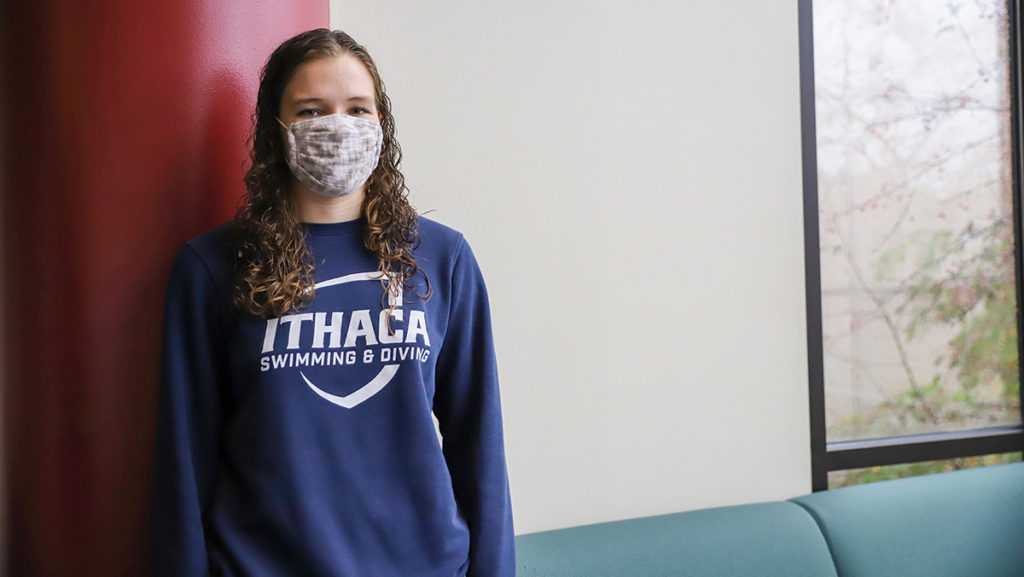Everyone remembers that one kid who would eat the gross cafeteria food, no matter how disgusting it seemed. At Ithaca College, we sometimes find ourselves being that kid when we visit the dining hall. Except this time, unlike in elementary or high school, you can’t easily avoid the cafeteria food by bringing your own lunch or getting lunch elsewhere. This time, it’s unavoidable; the dining hall is often the only option for breakfast, lunch and dinner.
Having good nutrition is one of the most important aspects of training. At least that’s what all student-athletes hear when they attend one of the four mandatory nutrition program sessions.
During these sessions, athletes are advised to eat healthily and have balanced diets, which involves eating the right number of calories, eating the right kinds of foods and making sure to not overeat or undereat. Athletes are advised to eat a plate of vegetables, proteins and carbs all in one meal, and between 1,600 and 2,000 calories a day to fuel for daily training. However, this idea of eating a perfectly balanced diet is easier said than done when surviving on dining hall food, which is not entirely reflected in the meals offered every day.
As a junior on the swim team, I can say that achieving a balanced, nutritious diet as a student-athlete with a meal plan is extremely difficult. For me, the biggest meal of the day when I feel the hungriest is after practice, especially in the middle of the season when our training is at its peak. Going to the dining hall after practice during my first two years of college was always a gamble. I never knew if I was actually going to enjoy the food or be disappointed by the options that it offered. My freshman year, the dining hall was lacking so much in options that I was stuck eating a salad every night, which by itself is not enough for a post-practice dinner. This, if anything, is detrimental to training because there isn’t a sufficient amount of the right types of foods to help the body recover after a day filled with hours of intense training. Not eating the right types of foods after training can lead to both short and long term effects like fatigue during practices, insufficient muscle recovery and much more. Eating enough of the right types of foods is especially important before competitions so that you can make sure to have enough energy to perform well. Although you might get lucky once in a while, the dining halls don’t provide enough options to support the diet required to fuel student-athletes. In addition to not providing enough options, there has sometimes been undercooked chicken, moldy bread and steamed vegetables that are too processed to serve any nutritional value. While there are some retail dining options, they offer mostly unhealthy options that are made fast and easy with nowhere near the nutritional value we need.
One way dining halls can be more accommodating to student-athletes is by simply adding more nutritious options. Student-athletes should not feel like they don’t have healthy options for meals, in addition to not being responsible to create healthier options on their own, especially when dining plans are mandatory for underclassmen. If there are not enough balanced, healthy options, students are paying thousands for a meal plan that does not support the diet they should have as athletes. Even with the current retail dining available on campus, meal plans only come with a limited number of Bomber Bucks. Once Bomber Bucks run out, the food must be paid for out of pocket, which may be difficult for some students to support depending on their financial situation. Besides creating more options in the dining halls, additional retail dining could be added in places like the Athletics and Events Center, that offer healthy food and are more accessible to student-athletes. That way athletes and other students could feel like they’re balancing their diet without having to go out of their way to do so. While there are always alternatives that you can do yourself, that shouldn’t always be the route to take. Would you want to work out for hours and leave the dining hall still feeling hungry?














